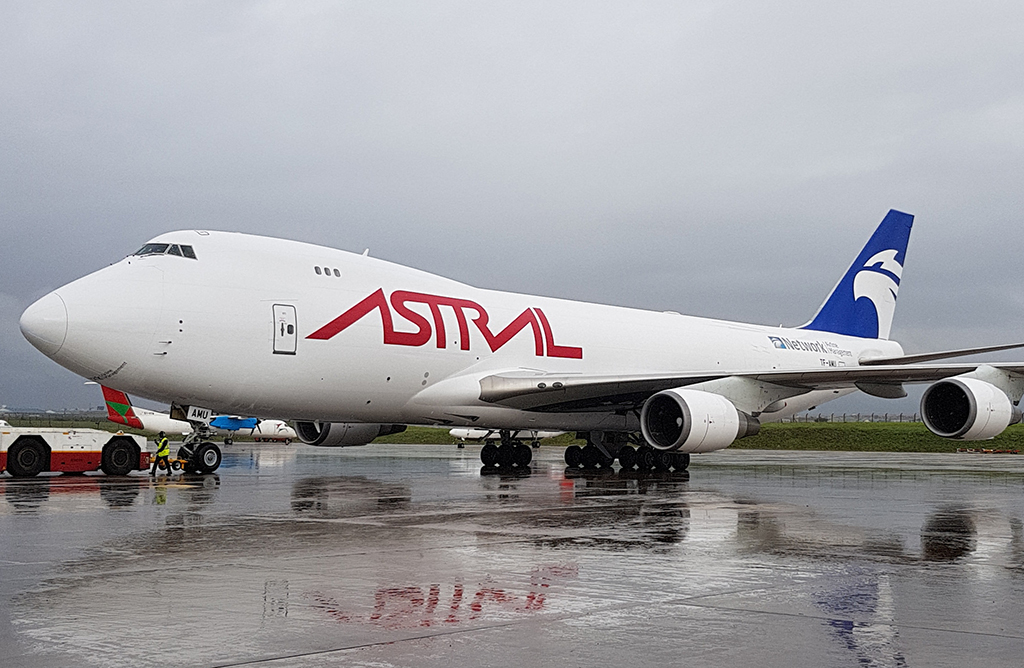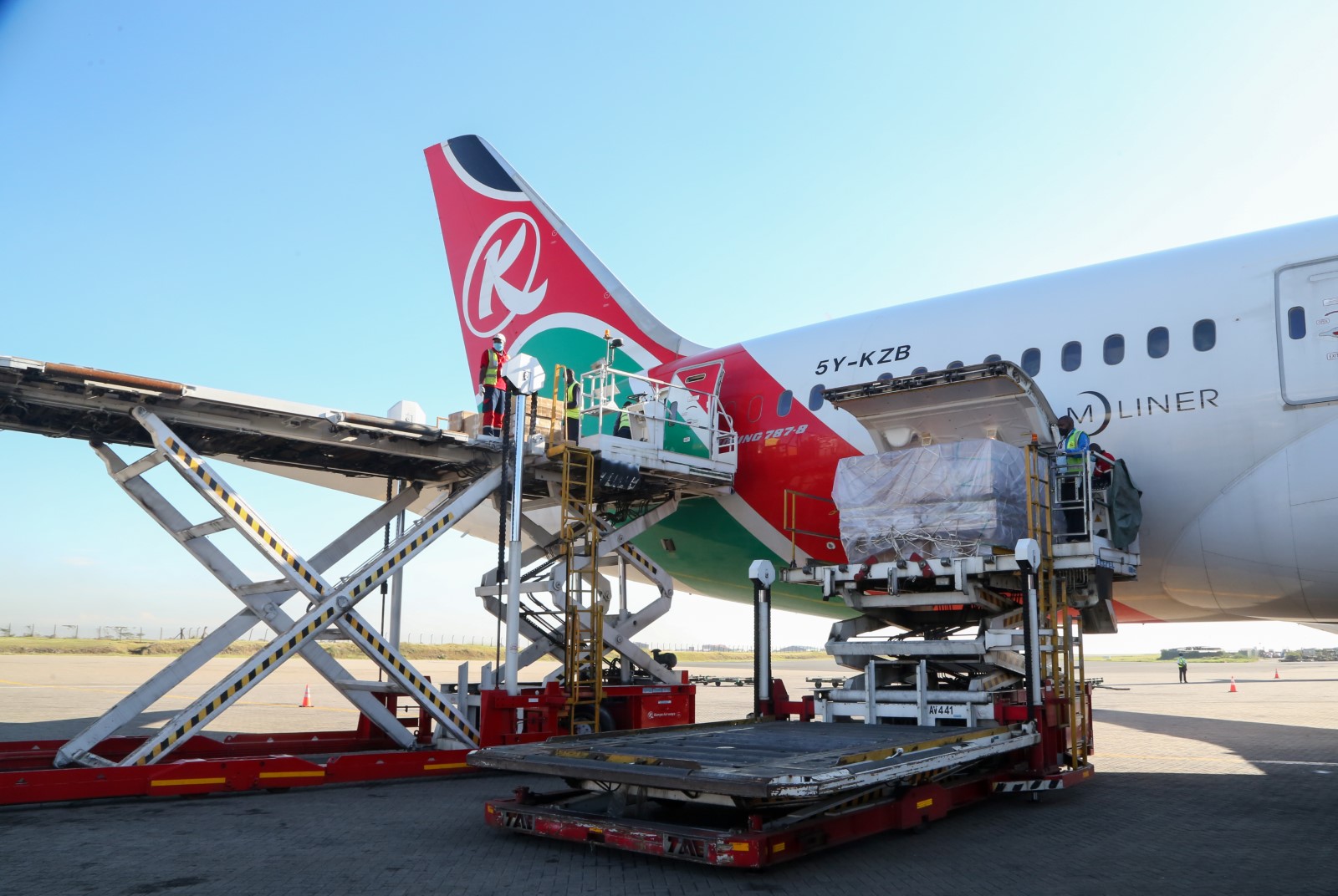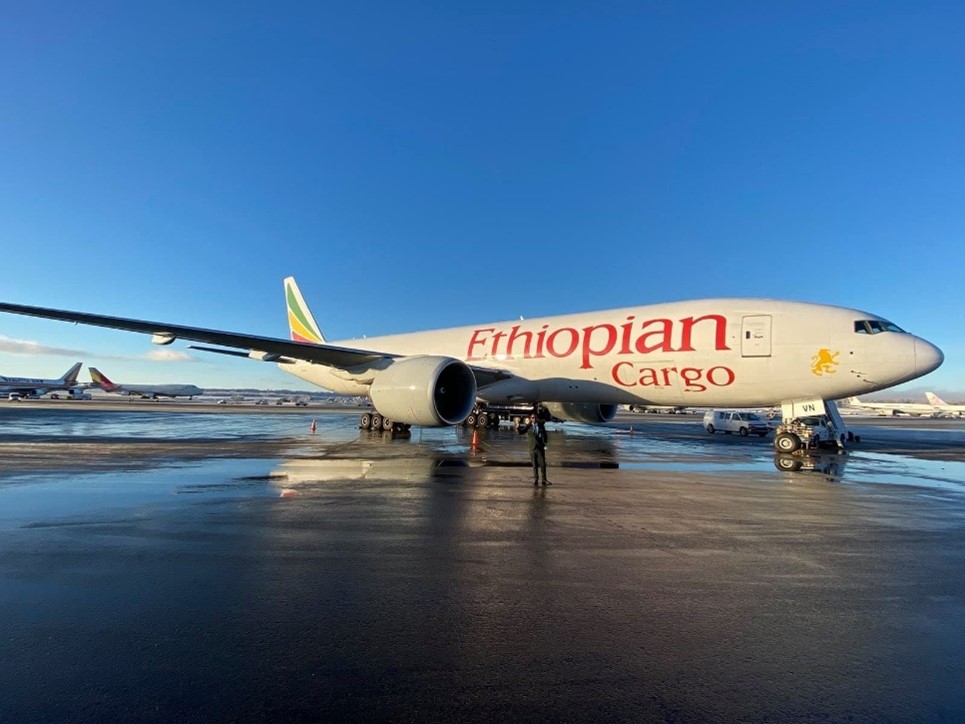African air cargo sets its sights on long-term growth
05 / 05 / 2023

Africa’s air cargo market is setting its sights on long-term growth, but in the meantime the continent continues to suffer from the strength of the US dollar and the impact of inflation on export markets.
Summarising the last few years, Kenya Airways cargo director Dick Murianki says that there was a big demand for air cargo in Africa at outbreak of the Covid pandemic because basics like food and medical supplies were urgently needed.
The upswing in demand combined with the loss of passenger operations put freighters in high demand.
To meet the demand, Kenya Airways switched two of its B787-9s to a preighter configuration with passenger seats removed, while it also operates two B737-300Fs.
Last year, there was also ocean shipping and general supply chain disruption as an offshoot of the pandemic. This again resulted in heightened demand for freighters.
Murianki says that an overspill of demand that could not be met at the height of the pandemic has now subsided and the global economic conditions are taking their toll on demand.
He says that Kenyan customers, which mainly export perishable products, are affected by the strength of the US dollar.
“The exporter in Kenya trades in dollars but is paid in euros or pounds, so when they convert the currencies into dollars, they get less,” he says.
Inflation and higher fuel prices have also dampened demand for Kenyan exports in Europe.
“People are concerned about the economy,” Murianki says. “One of the things we keep hearing is that power bills have gone up and so has the cost of living, so things like flowers and vegetables that they would ordinarily have been buying, they are cutting down on.”
In addition, the Russian and Ukrainian markets have essentially been cut off due to sanctions and bans related to the Ukraine war.
Climate change
Global warming is also having an impact on the African perishables market, Murianki says.
“Global warming is real,” he says. “We have had four seasons of failed rains and so the production has been affected.
“Production has continued under irrigation, but the reservoirs have to be refilled from the rain and if there is no rain, it has an effect.”
On the other hand, the fuel crisis has seen production of perishables in greenhouses in cooler climates reduce due to the cost of powering the facilities.

Abel Alemu, managing director, Ethiopian Cargo & Logistics Services, also says the market has slowed from the highs of the last couple of years.
“For obvious reasons, the last two years were very high for demand but starting from around July or late June last year we have started some kind of a dip – there are different reasons in different markets,” he says.
“Some markets are much more resilient than others, but in general demand is very sluggish.”
Looking specifically at the Ethiopian market, Alemu says that there has been “a little bit of a shortage on the import side” but adds that “exports have been very stable”.
“Volume-wise, there is a little bit of reduction from previous levels and the exporters mention the purchasing power of the customers, particularly in Europe, for the obvious reasons related with the energy prices and inflation.”
Ethiopian’s passenger network is continuing to recover which has been a boost to the airline’s cargo business. However, other carriers have also been adding belly capacity.
“That will increase the supply and ultimately the pressure will be on the pricing and the yield,” he adds.
Diversification
To adapt to the changing market, Murianki says that Kenyan Airways Cargo is diversifying away from traditional flows.
“We have gotten into the movement of things like live animals between South Africa and Mauritius, moving sheep and goats,” he says. “We have also been moving horses from South Africa.”
“Something else that is happening in Africa – the climate agenda and the deforestation means we are seeing people planting fruit trees, avocado, macadamia trees, so we have actually moved on our freighters loads of macadamia seedlings.”
He adds that as the Chinese market continues to open there will be increased demand for exotic food.
“We are carrying freighter loads of crabs, lobsters and shellfish out of Madagascar, through Nairobi and into China. Out of Mozambique into Nairobi and into China and even out of the east African coast into China.”
Ethiopian’s Alemu says that the carrier is also benefitting from the re-opening of China as Covid restrictions have been lifted.
The carrier offers freighter flights to eight cities in China having recently added two more; in February, the carrier started two new B777F services, one flying twice per week between Shenzhen and Liege and another between Xiamen and Sao Paulo.
Alemu says that looking at the wider market, there are hopes of a recovery towards the end of the second quarter.
Freighter needs
Murianki says that the use of B787-9s on all-cargo operations resulted in Kenya Airways building up a demand base that cannot be satisfied by the range of its existing B737-300 freighters.
As a result, the carrier is now looking to expand its freighter fleet.
Murianki says that the carrier is hoping to add two B737-800Fs.
“They can go from Nairobi to the Middle East and India and even have the range to reach Istanbul and southern Europe carrying around 20 tonnes,” he explains.
He adds that once the two B737-800Fs are in place, the carrier will then examine whether to invest in long-haul freighters.
Ethiopian has also been heavily investing in its freighter fleet.
The airline currently operates 14 freighters; nine B777Fs, four B737Fs and two B767Fs.
The carrier has another B767F in the process of being converted and it has five B777Fs on order, with the first due to be delivered by the end of the year.
Ethiopian has also signed a Memorandum of Understanding (MoU) with Boeing to purchase five new generation B777-8 freighters.
The airline has also signed an agreement with De Havilland Aircraft of Canada for the purchase of two Dash 8-400 Freighter – Large Cargo Door (F-LCD) conversion kits.
The proposal provides an option for an additional two kits.

Photo: Ethiopian Airlines
“The long-range B777Fs will mostly be used for transcontinental traffic,” says Alemu. “We want to strengthen our business network in the Far East, in Europe and also the Americas as well.
“We have customers in each corner of the world and we are not serving some of them because of limited freighter capacity.”
He adds that the mix of fleet means the carrier can serve customers whatever their needs.
Alemu says that the carrier has also been heavily investing in its Addis Ababa hub. The carrier is currently building an e-commerce logistics centre at the airport in response to fast-growing e-commerce volumes.
The new facility will cover 15,000 sq m and offers a capacity of 150,000 tonnes. The airline and its ground handling business also invested in achieving CEIV pharma certification.
“Ethiopian cargo is emerging as a major player in terms of global cargo carrier,” says Alemu.
“We are expanding our services not only in terms of network but in terms of fleet by modernising our fleet and expanding our customer base and type of service.
“We have major developments in the pharma and life science business we want to expand further on that and make our airline a preferred airline when it comes to distributing pharma not only to Africa but also around the world.”
Free trade
Another positive development for the continent is the African Continental Free Trade Agreement (AfCFTA).
AfCFTA is the world’s largest free trade area bringing together the 55 countries of the African Union and eight Regional Economic Communities.
The overall mandate of the AfCFTA is to create a single continental market with a combined GDP of approximately $3.4trn. It aims to eliminate trade barriers and boost intra-Africa trade.
However, for the agreement to be a success, it is essential that air cargo policy at a country level is enhanced to ease the movement of goods between countries.
During the Air Cargo Africa conference and exhibition, Kenya Airways chief executive Allan Kilavuka said: “The AfCTA is fantastic but it will not work if we don’t grow the air traffic and the aviation business in Africa.
“If the policy formulation is not in tandem with the intention of the free trade agreement it will not work.
“We don’t have the infrastructure when it comes to rail and road so aviation has to work for the agreement to work.”
Meanwhile, Astral Aviation chief executive Sanjeev Gadhia said that the biggest challenge faced by air cargo in Africa was the lack of liberalisation.
He hoped that the Single African Air Transport Market (SATM), which is slowly being implemented with the hopes of expanding interline and fifth freedom agreements, would play a part in resolving the issue.

Image source: Astral Aviation
In the meantime, partnerships between African carriers and non-African carriers were being prioritised over continental partnerships.
Elsewhere, Gadhia said that a lack of freighter aircraft could also hold back the continent’s development.
Infrastructure is also often mentioned as a challenge for the African air cargo industry.
Swissport South Africa chief executive Khangi Khoza said: “It is imperative that you invest in infrastructure anyway with an understanding that demand will follow.
“Of course, there will be fluctuations and disruptions that create potential risk when you are trying to realise the return on investment, but if you take a long-term view, rather than short term, then those that make the investment will benefit, for example those that invested before Covid were able to take up the rise in demand that followed.”
On the infrastructure challenge, Gadhia said that the private sector needed to step in and invest.
He said it was unlikely that governments would invest enough money in air cargo facilities to meet the potential demand.














